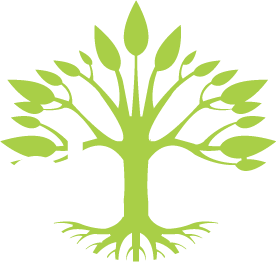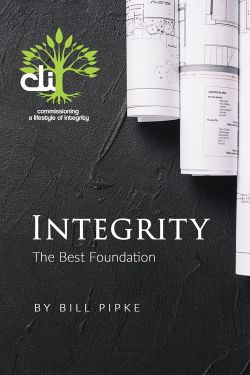Trust - Part 1 Session 2
Well, welcome back.
There have been times it would have been much easier and much more convenient for me to excuse myself from doing the right thing. And honestly, I have not always made that my choice. But I can tell you, when I've chosen the right thing, in spite of the cost, it's always been worth it.
Now, a lack of trust has a huge impact. But what if you betrayed trust? Or you've not earned trust? What can be done? The pillar of trust reminds us that integrity enables people to build or rebuild trust. Even a bad reputation can be restored. So let me present proof by referencing a rather extreme example. Probably none of us listening and none of us in this room have ever been guilty of anything close to what this man did:
Are you familiar with the story of a man by the name of Saul of Tarsus? After the resurrection of Jesus, a powerful religious political group called the Pharisees enlisted Saul to persecute the members of a new religious sect. They had one intent, and that was to stomp out this fledgling new group; and Saul eagerly accepted their appointment. And he conducted a vicious campaign against them. And his appetite for cruelty seemed to grow and grow. And he would not be satisfied to just attack the local group at Jerusalem. Soon, he would be stalking believers wherever they fled, and he would travel hundreds of kilometres in order to terrorize Christ followers. So, sinister Saul wanted his legacy to be that he completely purged Israel from this group. Now, one day, on an operation to Damascus, Saul encountered something that transformed his life. He would later tell people how a brilliant light from heaven stopped him, and he met the risen Christ. That moment transformed him. Suddenly, what he thought was right became wrong, and he realized his actions were a serious crime against humanity and against God.
Then and there, Saul stopped attacking the believers. He needed to prove he could be trusted. His credentials, his education, his achievements, his zeal, his work in the past would not matter unless it was redeployed and repurposed to prove who he was now. It would not be easy for this prosecutor to do.
Sometimes people assume that if you forgive someone, forgiveness requires that you immediately trust. Forgiveness and trust are not the same. Forgiveness is given, trust is earned. However, forgiveness extends the opportunity to one who has broken trust to reopen a trust account; so, just like a bank account can be opened, a trust account with a person or a business can be opened. And once that account is opened, you need to deposit something of value in the trust account. And that's what Saul had to begin to do.
So, how do you make relational trust deposits? Well, let me use the word "trust" as an acrostic, and answer your good question.
So trust, the letter T: Task. Accept it's your task to open the account and to make deposits. Trust requires that you commit to the task of making intentional deposits, even when that's not very convenient.
The letter R: Reliable. Make regular deposits. If you want to build a relationship with your kids, once a year on a vacation for two weeks isn't enough. What you need to do is to be with them every day.
The letter U: Unselfish. Making a trust deposit tells somebody that you care about them. Making a trust deposit reveals your character; and making a trust deposit suggests that they're safe to believe in you.
The letter S in trust is sacrificial. And sooner or later, trust accounts will be tested. This is what happened to Saul. A big test proved that he could be trusted; and generally, tests, though they are uncomfortable, are invaluable in restoring trust.
The letter T. It takes time. Time will pay dividends. Trust deposits are like currency in a bank that earns a reasonable trust. Time builds reputation. A good reputation is like the spinning flywheel: it takes a long time to get going, but once it's in motion, good luck at stopping it.
So here's our group question to begin to discuss:
Think of someone or some organization with whom you want to build trust. How can you build or develop trust with them? How can you make deposits into that trust account?




